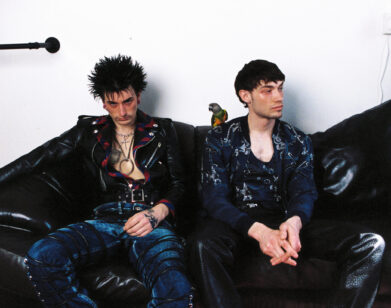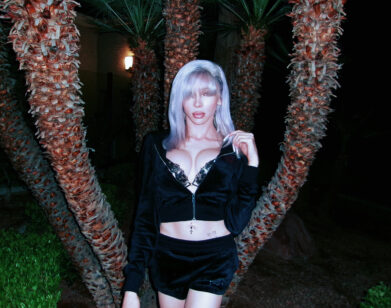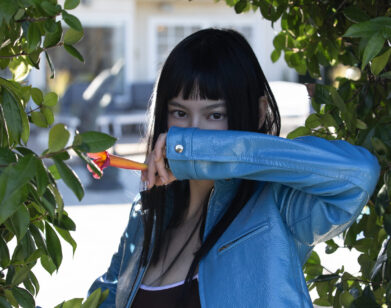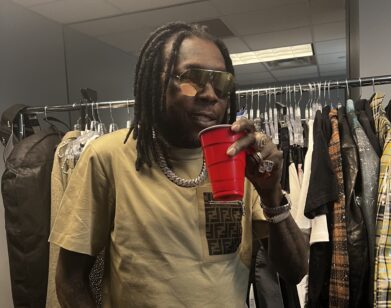SOHN Is Now
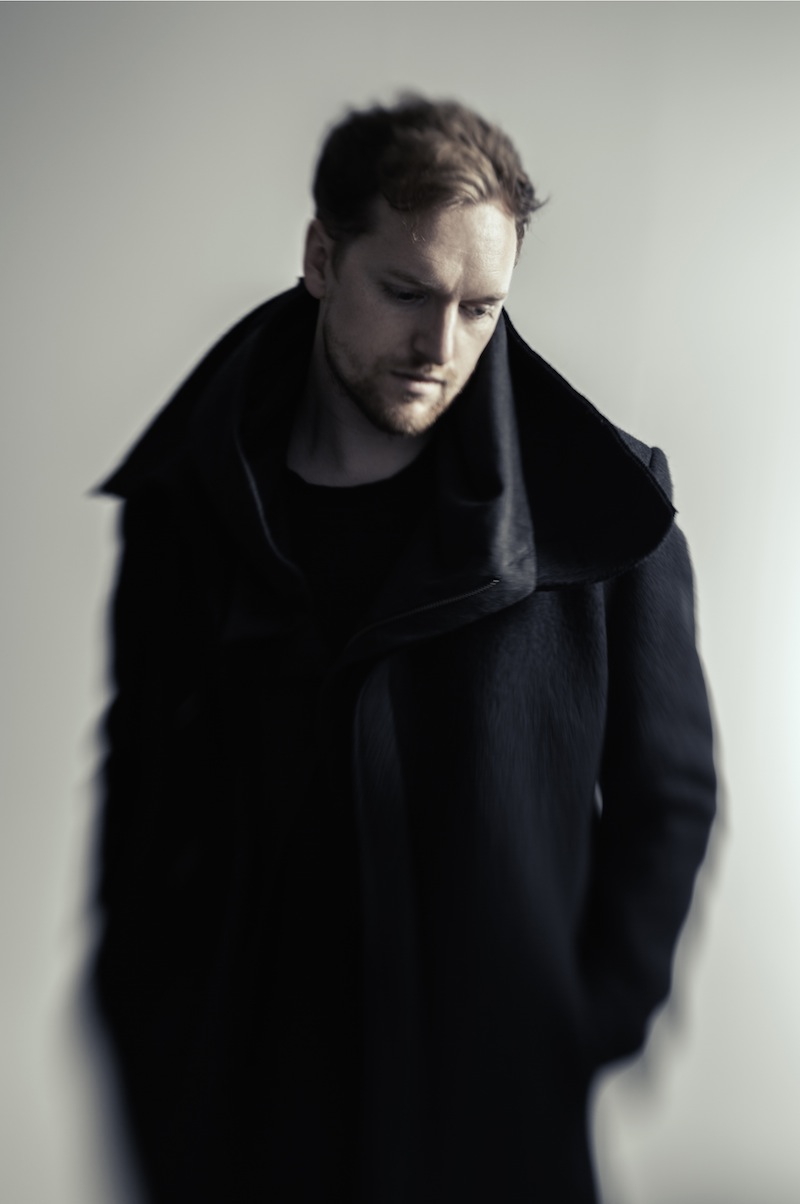
ABOVE: SOHN. PHOTO COURTESY OF ANDREAS WALDSCHUETZ
To a casual observer, it might seem like SOHN has rocketed from nowhere to become both a go-to producer for some of the biggest rising stars in music and a hotly tipped artist in his own right. In fact, SOHN was releasing material, including single “The Wheel,” as far back as 2012; that, along with a move from London to Vienna leading to a musical renaissance, helped to drum up the hype that surrounds the singer, songwriter, producer, and multi-instrumentalist today. Having recently returned from a stint in L.A. filled with intense writing sessions with the likes of SZA, Lorde, Mø, and Erik Hassle, SOHN checked in with Interview from his Austrian tour bus, before embarking on a mammoth headline tour around the world.
HOLLY RUBENSTEIN: First things first—can you please tell me the correct way to pronounce SOHN?
SOHN: Well, it’s up for debate! I pronounce it “sonn” just simply because I like the way it sounds, and with non-German speakers it’s easier to say. The correct way in German would actually sound like “zawn,” but I don’t really like the way that sounds.
Sohn means “son” in German. I loved the idea of the word, because it’s short and it was also important for me to have an “o” sound in my name. I like the idea of being the son of yourself—a bit of a rebirth, in a way. Also, I love the fact that it’s such a blank word.
RUBENSTEIN: When did you know that you wanted to make music your career?
SOHN: Probably when I was about six years old. I’ve always sung, and I always knew I wanted to be a singer in some way. I got into different types of music—Björk and people like that—and I realized that I wanted to be that kind of singer, more of an artist. Even when I was doing the shitty odd jobs, I would always say I was a musician, even though I knew I wasn’t, really.
RUBENSTEIN: From your acoustic set, it sounds like you were classically trained?
SOHN: I wasn’t. I actually had real difficulty reading sheet music because I used to look at the pages and the white would jump out at me, instead of the black. But at lunch breaks at school I’d always go to the music room and play drums or piano or whatever I could get my hands on.
RUBENSTEIN: How have you found the transition from being behind the scenes, as a producer, to being the artist?
SOHN: It’s funny, because to me the production thing almost happened by accident. A couple of songs were out from me as an artist, and as a result of that I got in the room with a couple of singers, and made music with them. For me, it was always that way around. Production was an extra thing which I’d try. I guess it’s kind of remarkable that a lot of people think of it the other way round now, simply because I’ve worked on some really good things. A lot of people describe me as an electronic producer, but I actually wouldn’t have described myself that way until maybe three months ago when I felt I was getting some really good production jobs with very good people. I would have always said, I’m a singer. I think the album brings the voice to the front, and makes that clear.
RUBENSTEIN: You’ve been secretive about your identity—what was the thought process behind that?
SOHN: At the moment it’s a thing to put music out at the beginning without saying anything about who it is, so that was the reason why it started that way. I’ve got a strange relationship with it, because I don’t think that I’m being particularly mysterious to say my name is SOHN. I’m doing interviews and there are pictures of my face, so it’s not like I’m hiding who I am. As soon as you say what your name is, everybody writes that in every interview, and it kind of annoys me. My name’s SOHN. It’s not really much more complicated than that, and there are loads of artists in the world who have one-word names. I’d like to somehow be able to close a door somewhere.
RUBENSTEIN: Thus far, you have been largely described as an electronic soul artist—is that a fair description of your sound?
SOHN: I have a hard time with soul, actually. I’m not sure that I would class it as that. I think there is an electronic or alternative R&B thing going on, and obviously sometimes my stuff hits some of that, but I wouldn’t say that I’m a soul singer, because there are no soul singer influences in my music. I haven’t grown up listening to soul music and I wouldn’t identify with it as a genre at all. I was into what you’d call alternative music. I identify more with bands like Wild Beasts, for example, than I do with someone like The Weeknd.
RUBENSTEIN: What has been your most magical moment in the studio when you have been producing?
SOHN: There have been quite a lot to be honest. One recently was SZA. We did something which came out really nicely, and my voice even ended up on it.
RUBENSTEIN: Have you felt very proud of the success of the artists that you’ve worked with so far?
SOHN: Absolutely. I don’t feel pride like that with my own stuff. When I listen to my own music I’m happy with it, but when for example, I hear the beginning of “Last Stand” and I hear Kwabs sing the first line that I helped to write, I just think, wow. I can’t believe I was involved in that. I can’t even explain what it was like being in that room while we made that. That was really some magic.
RUBENSTEIN: Which of your tracks would you say best encapsulates you as an artist?
SOHN: “Tempest,” the first track off the album, is a bit like a trailer for the record in a way—an overture, showcasing the different sounds. Or otherwise, “Tremors.”
RUBENSTEIN: Why did you leave London and move to Austria?
SOHN: I was a struggling musician who was trying to make things for myself in London. I made a lot of bad decisions. Everything that I was doing back then was the equivalent of being a kid to now being an adult. I tried too much and too hard to get people to pay attention to what I was doing, and so paying less attention to what I actually wanted to do. It’s something you see a lot with very young bands who are desperate to get a record deal so they’re trying to sound like something else. I felt like I wasn’t part of anything in London or involved with other artists at all. I’d had the chance to play in a couple of Austrian cities with my guitar and my laptop and the bands I’d met had been so welcoming—they just grabbed me in and said “move here.” I felt that sense of community, where everybody lives within a few streets of each other, and are going to each others’ houses at night and having a drink and talking about the art that they’re making.
RUBENSTEIN: Did that in turn affect your songwriting?
SOHN: Definitely. Over time the way that Vienna interacted with me meant that it relaxed me. As you start to relax as a person the true you starts to come out and all the trimmings get left by the side. Moving to another city where nobody knows you is the perfect way to start a blank page, isn’t it? You go there and define who you are. That was four years ago, and now that reinvention that I had when I moved there has made way for a real one and is no longer transitional. It’s drawing a line under everything and starting SOHN.
RUBENSTEIN: Finally, what are your plans over the next few months?
SOHN: I’m now on tour for two and a half months. The whole of Europe, all of North America and possibly an Asia tour. It’s amazing—I can’t believe it myself. Then it will be festivals and in between I’ll be finishing some production work for other people. And then around August I’ll start making some new music for myself—I’m already starting to get a little tetchy about not having started anything new for a while!
SOHN’S DEBUT ALBUM, TREMORS, IS OUT TOMORROW, APRIL 8, VIA 4AD. HE WILL PLAY BOWERY BALLROOM ON MAY 9 AND ROUGH TRADE IN BROOKLYN ON MAY 10. FOR MORE ON THE ARTIST, PLEASE VISIT HIS WEBSITE.

